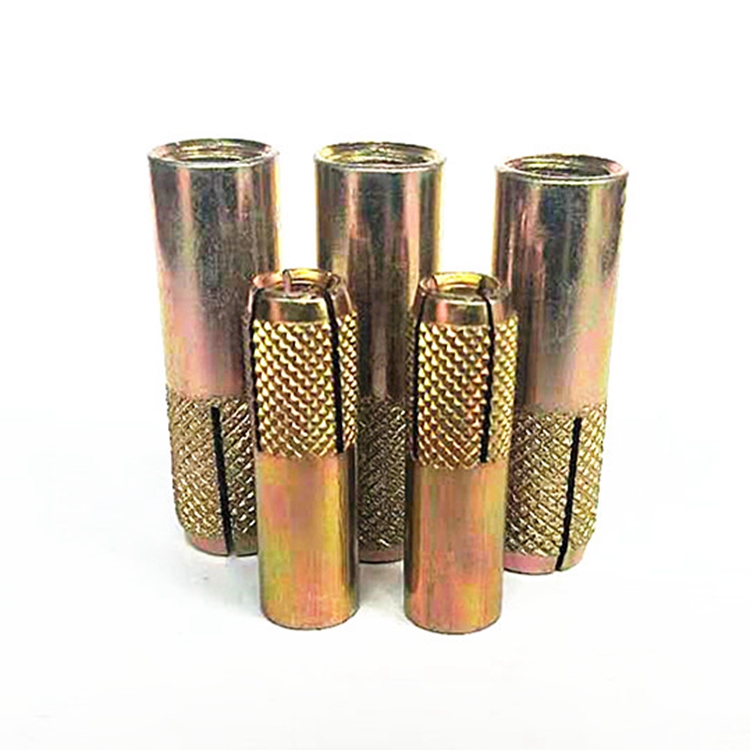high quality self locking bolts
Dec . 05, 2024 15:04 Back to list
high quality self locking bolts
The Importance and Advantages of High-Quality Self-Locking Bolts
In today's fast-paced manufacturing and construction industries, the use of high-quality components is essential for ensuring safety, reliability, and longevity. One such component that has gained significant attention is the self-locking bolt. These fasteners are designed to secure two or more components together while resisting the vibrations and forces typically encountered in various applications. This article delves into the importance and advantages of high-quality self-locking bolts.
Understanding Self-Locking Bolts
Self-locking bolts are innovative fastening solutions that incorporate a mechanism to prevent loosening over time. Traditional bolts, while effective, can be prone to loosening due to vibrations, thermal expansion, and other dynamic forces. Self-locking bolts typically feature a unique design that includes a locking mechanism—such as a nylon insert, serrated flange, or specially designed threads—that prevents them from unwinding during operation.
Key Benefits of High-Quality Self-Locking Bolts
1. Enhanced Safety The primary advantage of self-locking bolts is their ability to maintain tightness under various conditions. In critical applications, such as aerospace, automotive, and structural engineering, the risk of a bolt loosening could lead to catastrophic failures. High-quality self-locking bolts provide peace of mind, ensuring that joint integrity is maintained over time.
2. Vibration Resistance Machines and equipment often experience vibrations that can lead to the loosening of fasteners. High-quality self-locking bolts are engineered specifically to counteract this issue. The locking mechanism holds the bolt firmly in place, thereby reducing maintenance requirements and the risk of component failures.
3. Time and Cost Efficiency Using self-locking bolts can lead to significant savings in installation and maintenance costs. Since they reduce the likelihood of bolts loosening, fewer inspections and replacements are required, translating to lower labor costs and downtime. Additionally, in many cases, self-locking bolts can eliminate the need for additional locking components, simplifying the assembly process.
4. Durability and Longevity High-quality materials and production processes used in manufacturing self-locking bolts contribute to their durability. They are often made from robust alloys or corrosion-resistant materials, making them suitable for harsh environments, including those exposed to moisture, chemicals, or extreme temperatures. This resilience enhances their lifespan and reliability.
high quality self locking bolts

5. Versatility Self-locking bolts come in a variety of shapes, sizes, and materials, making them suitable for numerous applications. Whether in construction, automotive, aerospace, or industrial machinery, these fasteners offer flexibility in design and application, accommodating different load-bearing requirements and environmental conditions.
Selecting the Right Self-Locking Bolt
When choosing self-locking bolts, it is crucial to consider several factors to ensure optimal performance. These include
- Material The choice of material affects the bolt's strength, corrosion resistance, and thermal stability. Stainless steel, for example, is often preferred for outdoor or moist environments due to its resistance to rust.
- Thread Design The type of thread on the bolt can influence its locking capability. Some designs are better suited for high-vibration applications.
- Size and Fit It is essential to select the correct size and fit for the intended application. An improperly sized bolt can compromise joint integrity and lead to failures.
- Manufacturer Reputation Opting for bolts from reputable manufacturers known for quality assurance processes can significantly affect the reliability of the fasteners.
Conclusion
High-quality self-locking bolts are indispensable components in modern engineering and manufacturing processes. Their ability to withstand vibrations, offer enhanced safety, and provide cost-effective solutions underscores their importance across various industries. By selecting the right self-locking bolts, professionals can ensure the longevity and integrity of their projects, thereby fostering trust and reliability in their work. As industries continue to evolve, the demand for robust fastening solutions like self-locking bolts will undoubtedly grow, highlighting the need for ongoing innovation and quality in fastener technology.
Latest news
-
High-Quality Panel Stud Bolt Reliable Panel Stud Bolt Factory & Suppliers
NewsJul.08,2025
-
High-Precision Fine Thread Locknuts Manufacturer & Supplier Custom Solutions
NewsJul.08,2025
-
PH Imperial Stud Bolt – High Strength Fasteners from Leading Supplier & Factory
NewsJul.07,2025
-
High-Quality Allen Wrench Bolts Leading Factory, Company & Suppliers
NewsJul.07,2025
-
Wholesale Ball Stud Bolt - High Quality Supplier & Factory Price Reliable Wholesale Ball Stud Bolt Company
NewsJul.06,2025
-
High-Strength Alloy Bolts Manufacturer & Supplier Quality Alloy Fasteners Factory
NewsJul.06,2025
